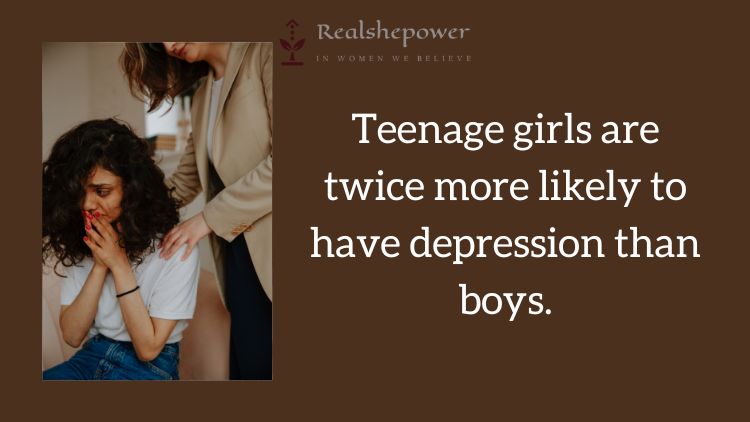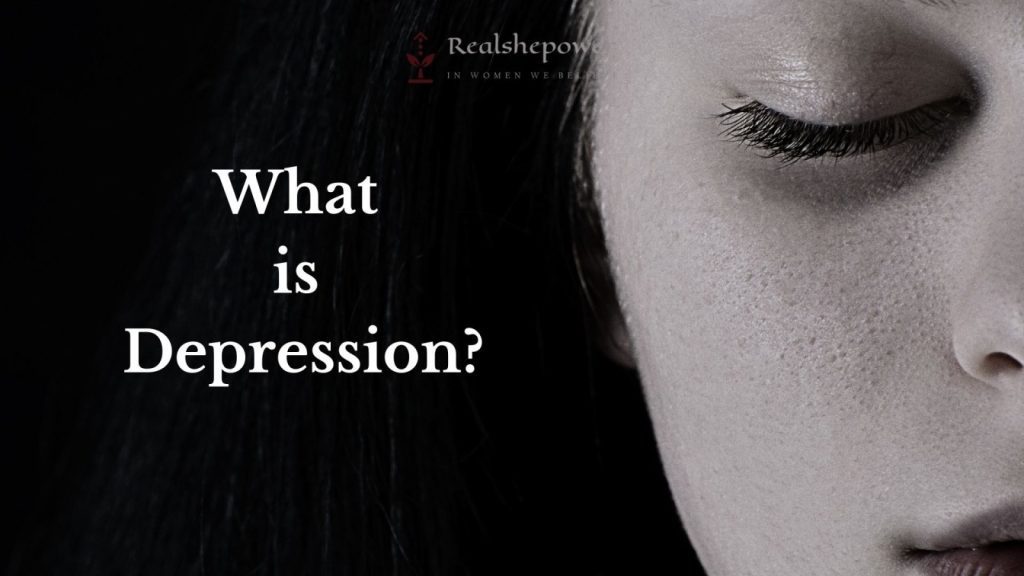Why Do Young Girls Experience Depression More?


Teenage girls have a lot to worry about in life, including the continual social scrutiny from peers and acquaintances, the beginning — and ending — of new relationships with boys, and new physical changes.
Not to mention the pressure from family members to perform well in school and the alterations in brain chemistry that take place during adolescence.
Teenage girls sometimes become overwhelmed by stress and pressure to the point that they shut down and are unable to handle it all in an efficient manner. In many cases, this shutdown raises more questions because the girl is displaying symptoms of depression.
In the United States, depression affects approximately two million youngsters, with twice as many girls as boys displaying symptoms of depression.
Read: What Is Depression?
Teenage Depression Warning Signs
- Inability to sleep or excessive sleeping
- loss of enjoyment or interest in once-enjoyed activities by teenagers
- change in appetite
- a decline in energy, melancholy, or agitation
- inability to focus at work or school
- thoughts of guilt for no apparent reason
- Suicidal ideas or a death-obsessed mindset
Some of these signs may appear to be typical aspects of adolescence. For instance, a 14-year-old does not necessarily have depression just because he sleeps until noon every weekend.
However, when a teen exhibits many symptoms and they last for longer than two weeks, it may be a sign of mild, moderate, or severe depression.
Why Do Young Girls Experience Depression More?
Boys and girls show similar rates of depression up until adolescence. However, girls report a higher overall number of stressful life events that cause depression at the start of puberty. Studies that looked into the reasons for this disparity between the sexes discovered that life values between girls and boys change during puberty.
Researchers found that interpersonal and achievement objectives for boys and girls began to diverge in adolescence in “Sex Differences in Adolescent Depression: Stress Exposure and Reactivity Models,” published in Child Development.
Researchers Benjamin L. Hankin, Robin Mermelstein, and Linda Roesch discovered that as girls approach puberty, they place a greater priority on interpersonal interactions, particularly with other girls. Greater levels of intimacy are typical in girls’ relationships.
Peer conflict becomes a significant cause of stress for girls during adolescence, and girls are more prone to experience depression as a result of stress. For instance, if a bunch of girls verbally and emotionally abuse another girl, that girl would probably feel stressed out and may even get depressed as a result of the experience.
Girls’ social interactions play a significant role in their self-definition and sense of identity. Girls frequently obsess about their own opinions of themselves, and peer interactions can either support or refute these opinions.
Read: 101 Growing Up Issues: Teenage Girl Problems And Their Solutions
Major Depressive Disorder in Teenagers
Teenagers who have a major depressive disorder (MDD) are more severely affected than those who frequently have minor depressive episodes during adolescence.
When a teen fails a test, is rejected from a sports team, or has a breakup, it’s common for them to feel depressed. However, when these events cause the kid’s life to come to a grinding halt and lead to the teen having unfavourable ideas about themselves, this points to the teen having clinical depression.
Teenagers with MDD are more likely to try to flee their homes, experience suicidal thoughts, engage in self-harm, and frequently complain of somatic symptoms such as headaches or stomachaches. Teenagers who experience serious depressive episodes also become shut off, which interferes with their academic and extracurricular pursuits.
Although treating MDD in teens is frequently successful, untreated MDD has a significant recurrence rate over the course of a person’s lifetime.
One must also note that teenagers who struggle with depression and lack the skills to cope sometimes resort to poor coping mechanisms in an attempt to stay afloat. These methods, however, ultimately harm the teen rather than help them.
Coping Mechanism
Teenagers who are already perplexed by the physical and emotional changes that adolescence brings are further confounded by depression’s perplexing array of emotions. Teenagers may attempt to draw attention to their symptoms in hazardous ways if they don’t even realise they are depressed.
A 15-year-old who has experienced a breakup might, for instance, be unable to face the emotional upheaval of losing a loved one and begin cutting as a way to divert herself from her emotions.
Teenagers who utilise pain as a diversion from their depression frequently get short relief, but only effective psychological treatment can result in permanent recovery. However, some youths use drugs to distract themselves from despair, just like those who self-harm.
According to researchers Eva Y. Deykin and colleagues, 79% of alcohol and drug abusers experienced depression or another psychiatric condition prior to starting their misuse. This shows that teen alcohol and drug misuse is a form of self-medication.
Self-medication, however, is ineffective, according to psychologists and other medical experts. Self-medication by substance abuse, self-harm, or other methods is likely to make depression symptoms worse.
Road Ahead
Parents, educators, and counsellors need to be aware of the signs of teen depression and its causes if they are to effectively treat it in teenagers, especially in girls. Psychotherapy is frequently used to treat severe depression, and psychologists and counsellors can help teenagers learn coping mechanisms.

Become a member of the RealShePower community
